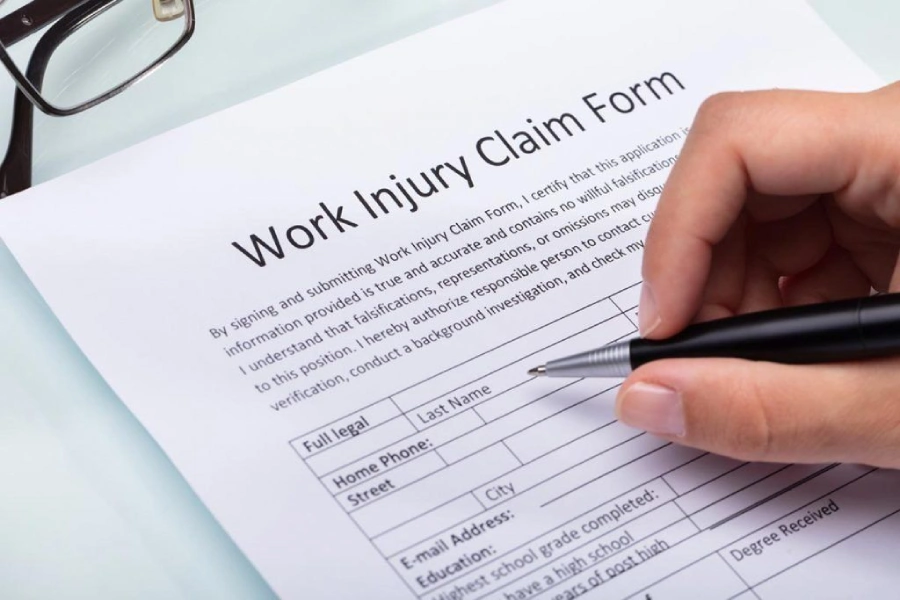Suffering a workplace injury is stressful enough. But when your workers compensation claim is denied, it adds another layer of anxiety and uncertainty. If you’re dealing with a denied workers compensation claim, hiring a skilled attorney can be the difference between continued struggle and rightful compensation. In this comprehensive guide, we explore what you need to know, your legal options, and why a denied workers compensation claim attorney is crucial.
Before you panic, it’s important to underst
Why Workers Compensation Claims Get Denied
and why claims are denied. Here are the most common reasons:
1. Missed Deadlines
You typically have a limited time window to report the injury and file the claim. Missing deadlines can lead to automatic denial.
2. Insufficient Medical Evidence
If your employer’s insurance provider believes the injury isn’t well-documented or not work-related, they may reject your claim.
3. Disputes Over Whether Injury is Work-Related
Sometimes employers argue that the injury happened off-site or during non-work hours.
4. Pre-Existing Conditions
5. Suspicion of Fraud
Any hint that the claim might be exaggerated or fabricated can lead to immediate dismissal.

What To Do After a Workers Compensation Denial
Step 1: Read the Denial Letter Carefully
Your denial letter will outline the specific reason(s) why your claim was denied. This will help guide your next steps.
Step 2: Gather Documentation
Collect all medical records, accident reports, witness statements, and correspondence with your employer and insurer.
Step 3: Contact a Denied Workers Compensation Claim Attorney
Do not attempt to navigate the appeals process alone. A qualified attorney specializes in appealing denied claims and knows exactly how to present your case effectively.

Legal Process to Appeal a Denied Claim
Every state has its own legal framework, but here’s a general overview of how the process works:
1. Filing an Appeal
You’ll need to file a formal appeal with your state’s workers’ compensation board. The deadline to file is usually 30-90 days.
2. Mediation or Settlement Conference
Some states require mediation before a formal hearing. This is an informal meeting to try and settle the dispute.
3. Administrative Hearing
If mediation fails, the case goes before an administrative law judge (ALJ). Your denied workers compensation claim attorney presents your evidence, and witnesses may testify.
4. Further Appeals
If the ALJ upholds the denial, you may be able to appeal to a higher court, depending on state laws.
How an Attorney Can Help You
Hiring a denied workers compensation claim attorney offers multiple advantages:
- Case Evaluation: A lawyer will review your claim and denial to determine the best legal path forward.
- Evidence Gathering: Attorneys know what types of medical records, expert testimony, and workplace documentation are needed.
- Representation: Having a legal expert by your side during mediation or a hearing increases your chances of a successful outcome.
- Negotiation Skills: If a settlement is possible, your attorney can negotiate better compensation.

Common Mistakes That Hurt Your Appeal
- Handling the appeal without legal help
- Not getting a second medical opinion
- Failing to submit additional evidence
- Missing deadlines again
Avoid these pitfalls by working closely with a qualified denied workers compensation claim attorney.
FAQ
Q1: How long do I have to appeal a denied workers compensation claim?
A: It varies by state, but generally between 30 and 90 days. Check your denial letter or consult an attorney quickly.
Q2: How much does a denied workers compensation claim attorney cost?
A: Many work on a contingency basis, meaning they only get paid if you win your case.
Q3: Can I refile instead of appealing?
A: Sometimes. If your denial was due to missing information or deadlines, a refiling may be more appropriate.
Q4: What if I can’t work while my appeal is pending?
A: You may qualify for short-term disability or other benefits depending on your situation.
Q5: Will hiring an attorney really improve my chances?
A: Absolutely. Studies show that claims with legal representation are far more likely to succeed.
Conclusion
A denied workers compensation claim doesn’t mean the end of the road. With the help of an experienced denied workers compensation claim attorney, you can challenge the decision and secure the benefits you’re entitled to. Don’t face the system alone—take action today and protect your rights.

